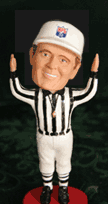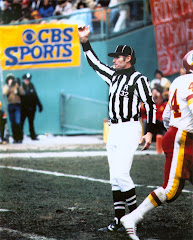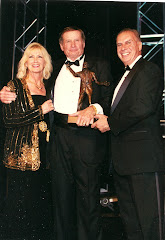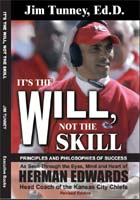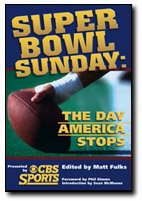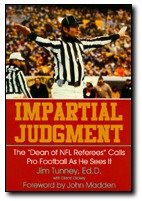After Further Review … On My Honor, I Will is a wonderful book just released by my friend and colleague Randy Pennington. The subtitle is “The journey to integrity–driven leadership.” It makes a wonderful present for those involved in leadership, as well as anyone who has a responsibility to and/or for others, e.g. coaches, teachers, parents.
The title reminds me first and foremost of the Boy Scout oath that I said often as a scout (Troop #9, Alhambra, California). At that young age, perhaps we really never knew how significant that oath would mean to us later in life. We faithfully recited it, and, of course, intended to practice it as scouts, but the real value may not have sunk in then.
Unfortunately, former NBA referee Tim Donaghy never was a Boy Scout and never learned this oath; or if he did, it got lost somewhere in his adult life. Donaghy, you will recall, is the NBA referee who bet on NBA games in which he officiated, as well as provided inside information to gamblers so that they could place bets based on his information. Donaghy pleaded guilty and served a 15-month sentence (should have been 15 years!) for felony wire fraud charges. Donaghy, out walking amongst us now, has recently released HIS book (ghost-written?) called Personal Foul – and it is certainly a “personal foul.” His accusations and impeachment of fellow officials is disgraceful. A rat turns on others to save himself. Further, Donaghy incriminates coaches, players and supervisors with accusations that often are not substantiated by fact.
With my 4 decades of officiating, this crime hit me right in the pit of my stomach. Ouch! Not only would I never even think of such debauchery, but never have witnessed it with any of my officiating colleagues.
Donaghy claims “addiction” (to gambling) as a great part of his problem. Hogwash! While some may have “gambling addictions,” a sense of honor, justice and just do the right thing would/should overtake such compulsions. The words “greed,” and “easy money,” are more often the case rather than addiction. Donaghy crossed a line he never should have been near.
In On My Honor, I Will, author Pennington discusses several characteristics that define integrity, and then asks the reader to rate (1-5 scale) him/herself. Here are just a couple: “I know what I stand for” – “I make decisions based on what’s right for all parties.” Wonder how Donaghy would rate himself on those traits?
Will you “On Your Honor” practice good for others?
Sunday, December 20, 2009
Sunday, December 13, 2009
Tunney Side of Sports; “Coming up next … What defines a Sportsman” #259, December 14, 2009
“Everything he does has such grace about it,” said Oakland A’s general manager Billy Beane about the New York Yankees shortstop Derek Jeter. Jeter was recently named 2009 Sportsman of the Year by Sports Illustrated. SI writer Tom Verducci began his story on Jeter this way: “Every sunrise is a fresh shot at victory – every day an invitation to compete with that same smile and delight of that (little) boy in the mirror that looked back at him …”.
As a kid, I was a Yankees fan listening to their games on the radio. Major League teams had not moved west of St. Louis, so Red Ruffing, Babe Ruth, Lou Gehrig, et al, had become “my team.” I didn’t get to know them as we do about sports stars today, i.e., their ups, their downs, the ins & outs of their off-field personalities – which is probably too much information anyway.
There have been many other great Yankee players that I admired, but when I watch Jeter play, what strikes me first and foremost is his smile. He looks like he’s having fun playing baseball by treating every day, every game, and every batting practice like he’s happy just to be there.
One of his coaches said, “Players gravitate toward him. He is well-liked, has a great disposition, a good sense of humor and, of course, that smile, but when it comes to working, that grin melts into a serious look.” Is there any part of the above that prevents any of us from adopting that kind of behavior?
Certainly credit must go to his mother (Dorothy) and father (Charles) for instilling in him the values of integrity, humility and respect for others. Maybe this example expresses it: Dorothy and Charles have been in the Yankees clubhouse only once, and that was back in 1995 when Derek first reached the big leagues. His parents were reluctant to go there, saying “this is where you work.” Proud, you bet! But respectful of him and his place of work. Is that so hard to do? That behavior transmitted their values to their son. We all can do that!
What Jeter dislikes most is an attitude of “not caring.” He believes that you must care about winning. Having fun includes an attitude of caring about winning. That’s a passion that all athletes need to follow.
Will you practice the Jeter values in everything you do?
As a kid, I was a Yankees fan listening to their games on the radio. Major League teams had not moved west of St. Louis, so Red Ruffing, Babe Ruth, Lou Gehrig, et al, had become “my team.” I didn’t get to know them as we do about sports stars today, i.e., their ups, their downs, the ins & outs of their off-field personalities – which is probably too much information anyway.
There have been many other great Yankee players that I admired, but when I watch Jeter play, what strikes me first and foremost is his smile. He looks like he’s having fun playing baseball by treating every day, every game, and every batting practice like he’s happy just to be there.
One of his coaches said, “Players gravitate toward him. He is well-liked, has a great disposition, a good sense of humor and, of course, that smile, but when it comes to working, that grin melts into a serious look.” Is there any part of the above that prevents any of us from adopting that kind of behavior?
Certainly credit must go to his mother (Dorothy) and father (Charles) for instilling in him the values of integrity, humility and respect for others. Maybe this example expresses it: Dorothy and Charles have been in the Yankees clubhouse only once, and that was back in 1995 when Derek first reached the big leagues. His parents were reluctant to go there, saying “this is where you work.” Proud, you bet! But respectful of him and his place of work. Is that so hard to do? That behavior transmitted their values to their son. We all can do that!
What Jeter dislikes most is an attitude of “not caring.” He believes that you must care about winning. Having fun includes an attitude of caring about winning. That’s a passion that all athletes need to follow.
Will you practice the Jeter values in everything you do?
Subscribe to:
Posts (Atom)



